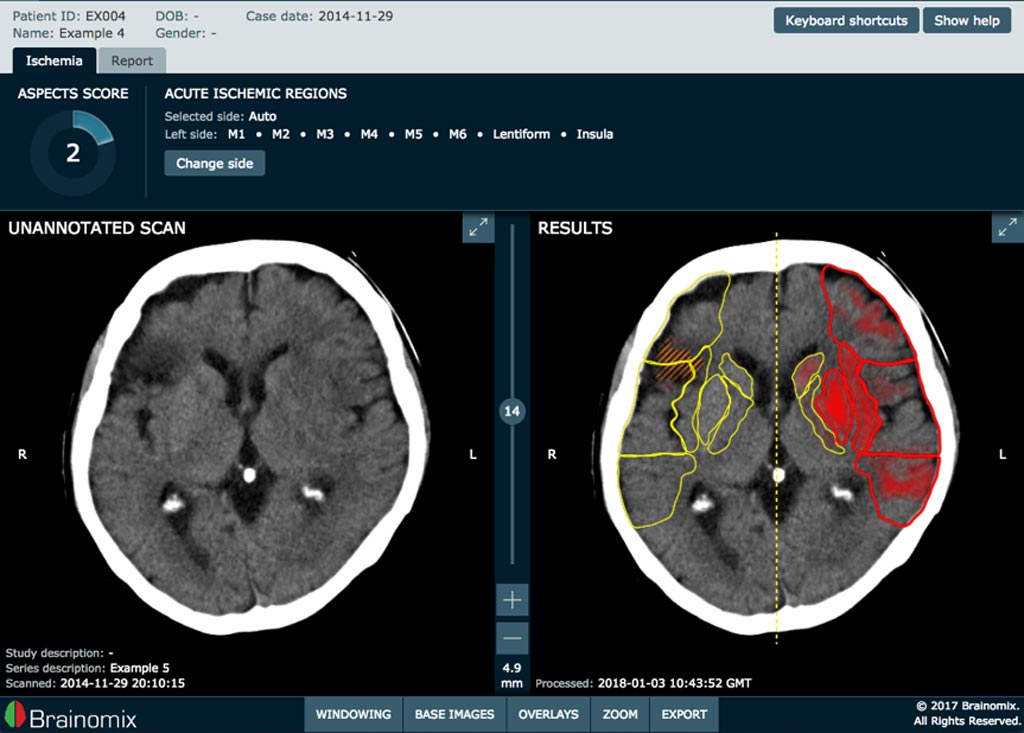AI-Driven Software Uses CT Scans to Determine Extent of Brain Injury in Stroke Patients
By MedImaging International staff writers
Posted on 05 Nov 2019
A new study has shown that an artificial intelligence (AI) driven software can reliably tell doctors how much brain is injured in stroke patients using universally available CT scans, without the need for more complex advanced imaging.Posted on 05 Nov 2019
The study, conducted by physicians from a number of leading German hospitals, looked at scans and clinical information from 388 patients using the latest version of the e-ASPECTS software developed by Brainomix (Oxford, UK). The e-ASPECTS software is one of three modules comprising Brainomix's e-Stroke Suite, the most comprehensive imaging solution that empowers clinicians across all stages of the stroke patient pathway and supports the thrombectomy decision-making process, from non-contrast CT interpretation, to collateral assessments and LVO detection, to more advanced perfusion-based assessments.

Image: The e-ASPECTS software uses AI algorithms to automatically identify and quantify acute ischemic core within seconds of the scan acquisition (Photo courtesy of Brainomix).
e-ASPECTS uses AI algorithms to automatically identify and quantify acute ischemic core within seconds of the scan acquisition. Ischemic core volume is increasingly being used by doctors to select treatment for stroke patients, particularly for those presenting outside traditional treatment time windows. Until now, such information has only been available at hospitals with urgent access to advanced imaging resources, limiting the provision of advanced stroke care to a minority of patients.
“The study results show that e-ASPECTS volume provides a robust assessment of the early brain injury in stroke patients using only non-contrast CT scans, without the need for difficult-to-access advanced imaging. This is vitally important, as the vast majority of hospitals around the world do not have advanced imaging in their Emergency Departments,” said Dr. George Harston, Chief Medical Officer and Innovation Officer for Brainomix, and stroke physician at Oxford University Hospitals NHS Foundation Trust. “Even for those hospitals that do have advanced imaging hardware, it is often slow and can introduce delays to time-critical stroke treatments. This study exemplifies the revolutionary way that the e-Stroke Suite uses AI to leverage more information out of the data that hospitals are already acquiring, but just not utilizing. This technology can give doctors in any hospital worldwide more information to help them treat stroke patients better.”
Related Links:
Brainomix














